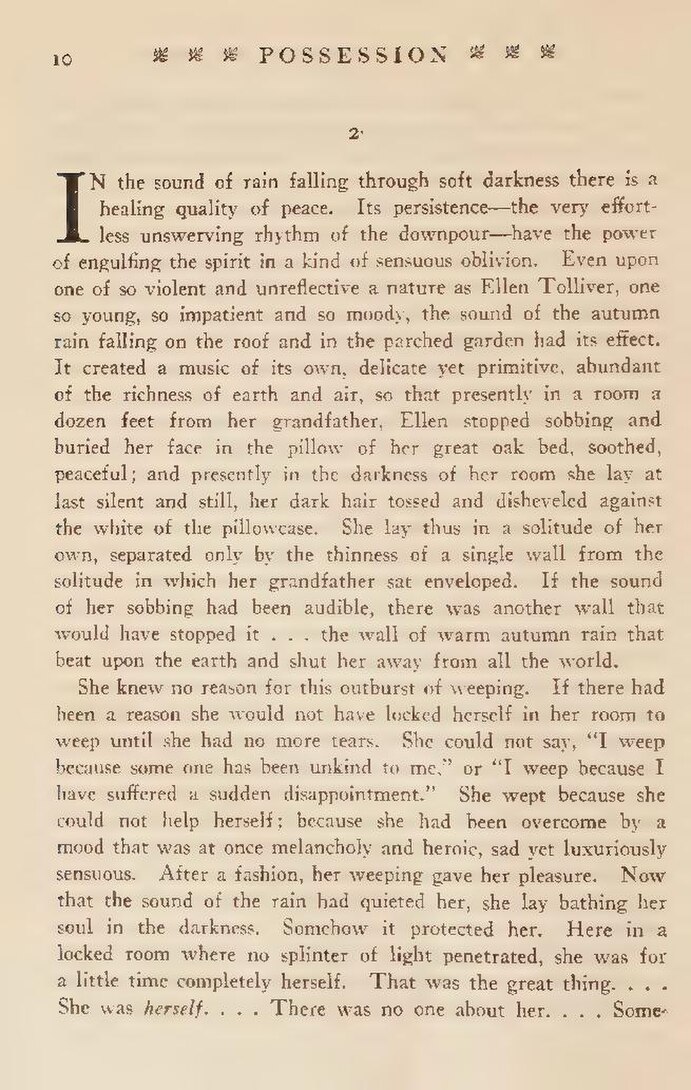IN the sound of rain falling through soft darkness there is a healing quality of peace. Its persistence—the very effortless unswerving rhythm of the downpour—have the power of engulfing the spirit in a kind of sensuous oblivion. Even upon one of so violent and unreflective a nature as Ellen Tolliver, one so young, so impatient and so moody, the sound of the autumn rain falling on the roof and in the parched garden had its effect. It created a music of its own, delicate yet primitive, abundant of the richness of earth and air, so that presently in a room a dozen feet from her grandfather, Ellen stopped sobbing and buried her face in the pillow of her great oak bed, soothed, peaceful; and presently in the darkness of her room she lay at last silent and still, her dark hair tossed and disheveled against the white of the pillowcase. She lay thus in a solitude of her own, separated only by the thinness of a single wall from the solitude in which her grandfather sat enveloped. If the sound of her sobbing had been audible, there was another wall that would have stopped it . . . the wall of warm autumn rain that beat upon the earth and shut her away from all the world.
She knew no reason for this outburst of weeping. If there had been a reason she would not have locked herself in her room to weep until she had no more tears. She could not say, "I weep because some one has been unkind to me," or "I weep because I have suffered a sudden disappointment." She wept because she could not help herself; because she had been overcome by a mood that was at once melancholy and heroic, sad yet luxuriously sensuous. After a fashion, her weeping gave her pleasure. Now that the sound of the rain had quieted her, she lay bathing her soul in the darkness. Somehow it protected her. Here in a locked room where no splinter of light penetrated, she was for a little time completely herself. That was the great thing. . . . She was herself. . . . There was no one about her. . . . Some-
